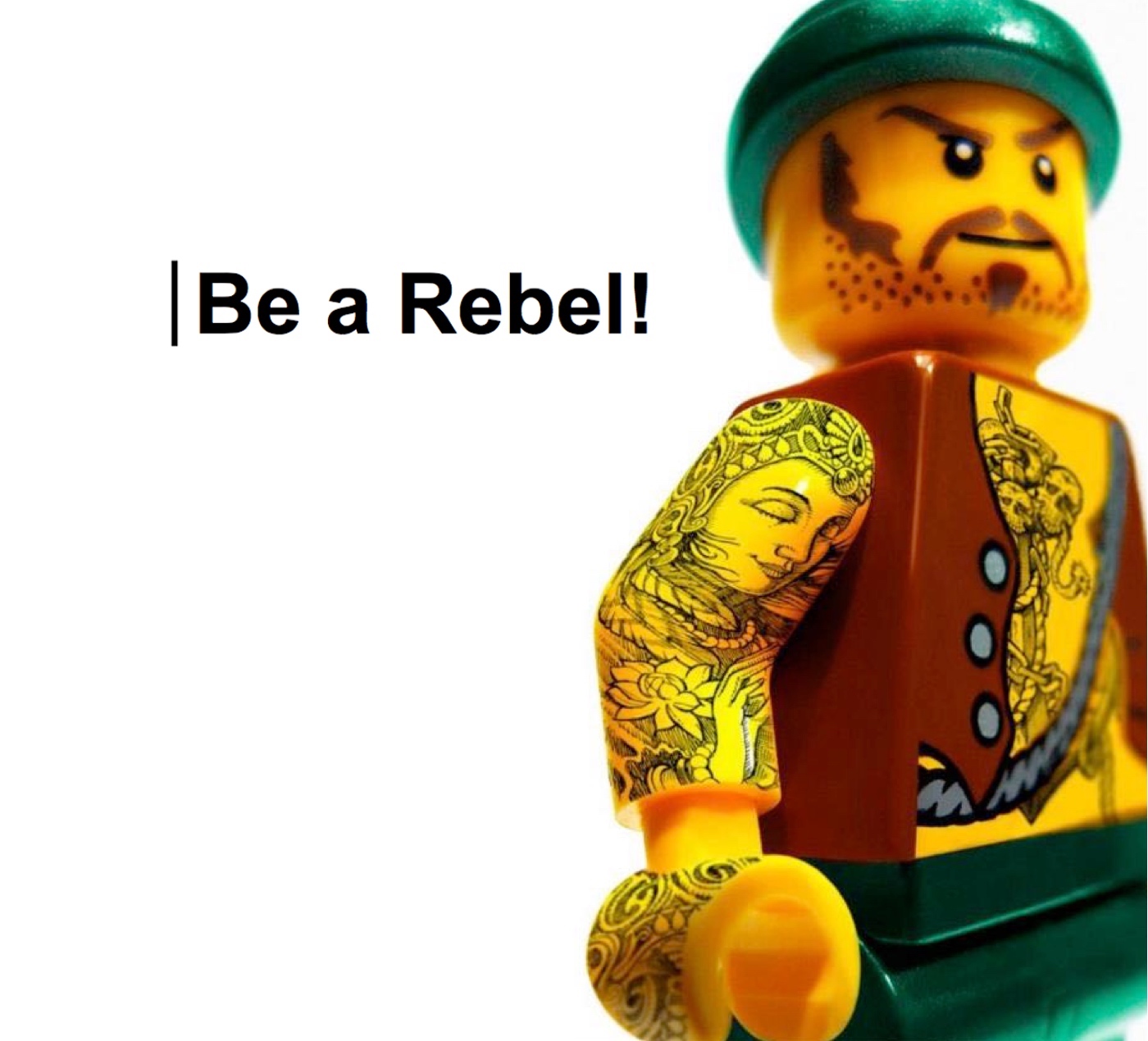
Last week I attended an amazing talk by David Gram, the Head of Business & Marketing Development at the LEGO Future Lab. And while it wasn’t specifically on LEGO Serious Play, it was about LEGO & Innovation and so I had to bring you some of the gold David talked about.
David is a part of The LEGO Future Lab, which is responsible for driving innovation at the LEGO Group. It’s mission is summed up nicely in this article from Marketing Magazine:
This innovation lab is tasked with inventing the future of play, a large part of which is identifying growth opportunities and ensuring that LEGO stays ahead of the curve.
They strive to do things not otherwise done and to introduce radical innovation without jeopardising the core business and value propositions of the LEGO brand.
During David’s talk he took us through how the LEGO Future Lab works. And I wanted to share some of those insights with you.
There were 3 things that stuck in my mind from the talk: Disrupt Yourself, Open Innovation and Lean Startup. For those with an even cursory knowledge of modern innovation theory, these three approaches are nothing revolutionary. But like with most things, it’s all in the execution. And LEGO have been the masters of execution.

“Disrupt Yourself”
It’s no surprise that some of the biggest and most successful brands in the world (Apple, LEGO) are renowned for disrupting themselves. Don’t rest on your laurels, build the next big thing before a competitor does.
LEGO no longer have a patent on their iconic brick design (it expired). So anyone can copy their product and business. They need to stay ahead of the curve because there are plenty of toy makers on their heels.
One interesting battleground of disruption is the intersection of play and digital. It would be easy for a physical toy maker to view digital as a competitor, but instead LEGO are embracing it. Sure there have been missteps (i.e. Minecraft should have been LEGO). But they are pursuing digital projects combining traditional LEGO and new experiences. LEGO Fusion and the recent LEGO Dimensions are examples of this.
Lesson for me: Know your core, Identify trends, Embrace them, Own them, Disrupt yourself.
“Open Innovation”
Open Innovation is the notion of using external ideas from customers, suppliers and partners to help drive innovation. LEGO do this in a number of ways, but one interesting project is called LEGO Ideas. It’s a platform that allows fans to design their own sets, gather support from fellow fans (need at least 10,000 fans) and eventually get LEGO to produce that set as one of it’s standard lines. It’s basically crowd sourcing the design of new LEGO sets.
Some notable successes from LEGO Ideas are: LEGO Minecraft, LEGO Back to the Future, LEGO Ghostbusters.
Another huge success from LEGO Open Innovation is the LEGO Architecture line. There is a large “secondary” market of LEGO enthusiasts who are skirting around the edges of breaking LEGO copyright and trademarks by selling LEGO products and services. Instead of bringing in the lawyers, they’ve embraced the community, given it some guidelines and in some cases worked with them to develop new product lines. LEGO Architecture was one of those.
Lesson for me: Put your ego aside and embrace the enthusiasm of customers (including those rebels at the edge).

“Lean Startup”
Build-Measure-Learn-Repeat. LEGO have embraced the Lean Startup approach to experiment and test ideas in a safe way without blowing up the LEGO brand. They quite often test new sets and ideas in small batches in Japan. It’s a mature market but also somewhat contained culturally, so there is little danger in damaging the wider brand.
For the LEGO Architecture line I mentioned earlier, they tested in just a couple of stores in Chicago. It proved a success and so they expanded it. They’ve tested LEGO jewellery in some London Stores. Not a success, so they pulled the plug. No harm done.
Lesson for me: Small projects, small budgets, test, learn, prove.

As I mentioned at the beginning: Disrupt Yourself, Open Innovation and Lean Startup are nothing revolutionary. They’re not a secret. But it’s great to see an example of a really successful company that is using these innovation principles to drive it’s business forward.
